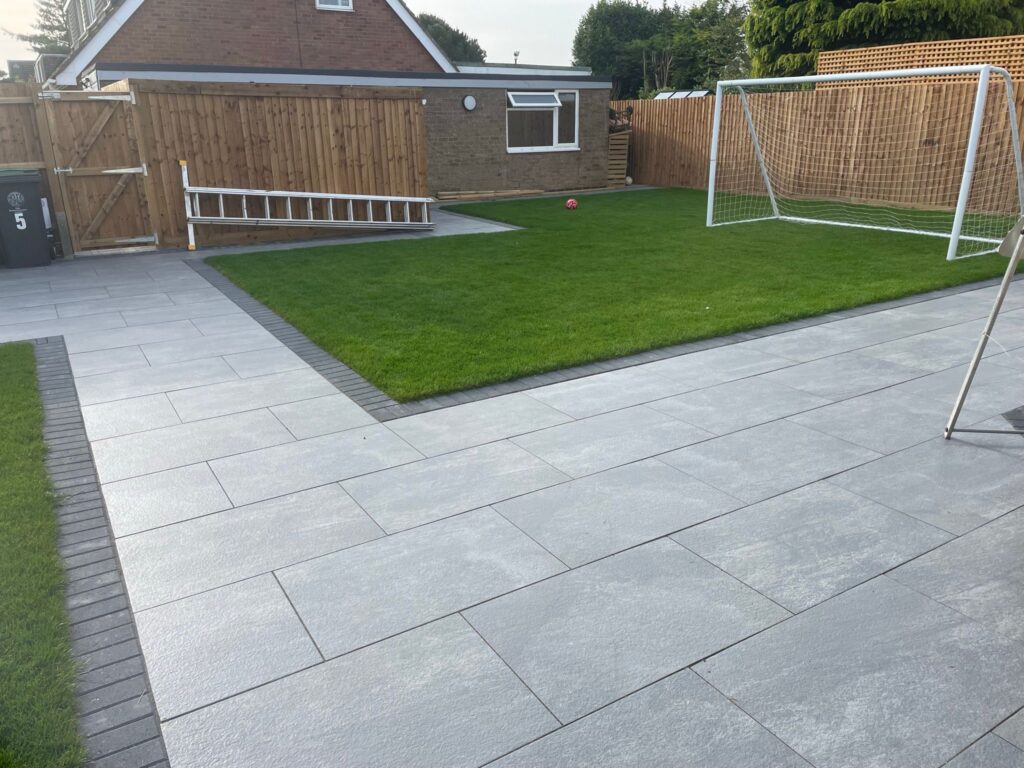How to Maintain Your Block Paving Driveway to Ensure It Stays in Top Shape
Block paving driveways are a popular choice for homeowners due to their aesthetic appeal, durability, and versatility. A well-maintained block paving driveway can significantly enhance your property’s curb appeal while providing a safe and functional surface for your vehicles. However, like any outdoor feature, block paving requires regular maintenance to ensure it stays in top shape for years to come. For homeowners in Finedon, Northamptonshire, understanding how to care for your block paving driveway is essential for protecting your investment and keeping it looking its best.
The Importance of Regular Maintenance
Maintaining your block paving driveway isn’t just about keeping it looking nice—it’s also about ensuring its long-term durability. Block paving is subject to wear and tear from the elements, vehicle traffic, and footfall. Regular maintenance helps to prevent damage, reduce the likelihood of weeds growing between the blocks, and ensures that the surface remains level and safe.
Without proper care, you may face issues such as cracks, stains, or even uneven surfaces, which can compromise the safety and functionality of your driveway. Regular maintenance not only extends the lifespan of your driveway but also helps to maintain its value.
Steps to Maintain Your Block Paving Driveway
Here are some practical steps to help you keep your block paving driveway in top shape:
- Regular Cleaning
Cleaning your block paving driveway is the first step in maintaining its appearance. Over time, dirt, debris, and moss can accumulate on the surface, making it look dull and worn. To clean your driveway:
- Sweep away loose debris regularly to prevent it from building up.
- Use a pressure washer to remove stubborn stains, moss, and algae. Be cautious not to use too much pressure, as this can damage the blocks or jointing sand.
- For oil or tyre stains, use a suitable driveway cleaner or degreaser to lift the marks, following the manufacturer’s instructions.
Cleaning your driveway every 6 to 12 months will help keep it looking fresh and prevent dirt and moss buildup that can lead to long-term damage.
- Re-Sanding the Joints
One of the key maintenance tasks for block paving is ensuring the joints between the paving blocks are properly filled with sand. Over time, the sand in the joints can wash away due to rainfall or be displaced by vehicle traffic. When this happens, gaps can form between the blocks, allowing weeds to grow through and causing the blocks to shift.
To re-sand your driveway:
- Remove any weeds or moss from the joints using a weed killer or a stiff brush.
- Once the surface is clean and dry, use a suitable jointing sand (preferably kiln-dried) to fill the gaps between the blocks. Sweep the sand into the joints and then compact it with a plate compactor to ensure it settles correctly.
- If needed, apply a sealant to the sand to help prevent it from washing away in the future.
- Weed Control
Weeds are one of the most common issues for block paving driveways. They can grow between the blocks and cause unsightly gaps, which can also compromise the structural integrity of the driveway. Preventing and removing weeds is essential for keeping your driveway in good condition.
To manage weeds:
- Apply a weed killer or herbicide to kill any weeds between the blocks. Make sure to use a product that is suitable for block paving and follow the manufacturer’s instructions.
- Alternatively, use natural methods such as boiling water or a mixture of vinegar and salt to kill weeds.
- Regularly inspect your driveway for any new weeds and remove them promptly to prevent further growth.
- Fixing Cracks and Damaged Blocks
Although block paving is durable, it can become damaged over time due to heavy traffic, weather conditions, or settling. Cracks or broken blocks should be addressed as soon as possible to prevent further damage.
To repair cracks or replace damaged blocks:
- If only a few blocks are cracked or broken, they can be replaced individually. Carefully remove the damaged block, clean the area, and replace it with a new one.
- For more extensive damage, you may need to replace multiple blocks or have the area re-laid. If you are unsure about the best course of action, it’s always a good idea to consult with a professional.
- Sealing the Driveway
Applying a sealant to your block paving driveway is a great way to protect the surface from stains, dirt, and weather damage. Sealants create a protective layer over the blocks, helping to prevent the growth of moss and algae, as well as reducing the absorption of oil or grease.
To seal your driveway:
- Choose a high-quality block paving sealer that is appropriate for your driveway’s surface and climate.
- Clean the surface thoroughly before applying the sealant to ensure it adheres properly.
- Follow the manufacturer’s instructions for application and allow the sealer to dry fully before using the driveway.
Conclusion
Maintaining your block paving driveway doesn’t have to be a difficult or time-consuming task. By following these simple steps, you can keep your driveway looking great while extending its lifespan. Regular cleaning, re-sanding, weed control, crack repair, and sealing are essential for ensuring that your driveway remains in top shape.
For homeowners in Finedon, Northamptonshire, looking for expert advice or professional driveway maintenance services, Finedon Driveways & Patios is here to help. Our experienced team can provide comprehensive care for your block paving driveway, ensuring that it remains functional, attractive, and safe for years to come. Contact us today to schedule a consultation or learn more about our services.
Call us on: 01933 823 204
Click here to find out more about Finedon Driveways & Patios
Click here to complete our contact form and see how we can help with your driveways.

